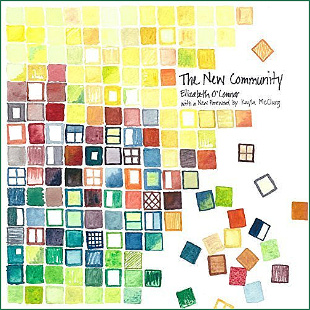Elizabeth O’Connor was an early member of the Church of the Saviour in Washington, D.C, considered by many in the progressive church as a model of Christian community. The author seems to have a special talent for nurturing community. For her, the mission of the Church "is to build life together, to create liberating communities of caring."
In chapters stretching from the deeper places people find in themselves after the death of a little girl to one on social justice as the mainstay of the Christian path, to separate chapters on the challenges of inner and outer work, O'Connor impresses with her radiant faith and buoyant hope.
In the most dramatic chapter in the paperback, the author spells out the "Marks of the Liberating Church":
- A clear, radical, unequivocal commitment to the poorest, the weakest, and the most abused members of the human family.
- Commitment to a life of dialogue
- A radical commitment to a critical contemplation of one's own life and the life of one's faith community
- A commitment to a life of reflection
- Structuring into every day a time of solitude
O'Connor concludes:
"To be a liberating community is to touch not only an individual quiet center, but a corporate quiet center, and to drink as a people out of wells of living water. Out of us will flow an unbelievable creativity. People will begin to marvel at what they see, but that which is happening flows out of an inner life. What is seen is visible as a result of this inwardness – an inwardness that must always be protected, nurtured, and tended."
